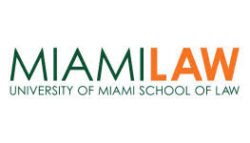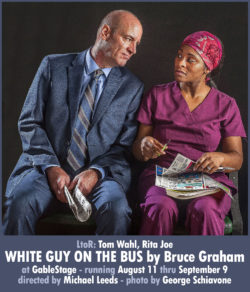We’re hiring again – up to four slots! – so it’s time to revive my annual post on why you should teach here.
1. Faculty
 The best reason to come to U.M. is the faculty. At its best (which is to say, “outside of faculty meetings”), this is a faculty that believes ideas are serious things, but also is willing to play with them. You will see this most vividly at faculty seminars, especially those with external speakers. The faculty reads the paper in advance of the talk. It thinks about it. We don’t let the presenter speak a long time — we want to have a discussion. There may be an element of performance in the questions and comments, but that usually just adds to the fun. Unlike some faculties I’ve heard about, we are not worshipers at the temple of sub-disciplinarity: faculty members feel comfortable commenting on papers far outside their own specialties, and they are usually right to do so as the distant perspective sometimes proves at least as valuable as the insider’s. Visiting Professor John Flood gives a good description of the Miami seminar experience in Giving Papers at Miami (2008).
The best reason to come to U.M. is the faculty. At its best (which is to say, “outside of faculty meetings”), this is a faculty that believes ideas are serious things, but also is willing to play with them. You will see this most vividly at faculty seminars, especially those with external speakers. The faculty reads the paper in advance of the talk. It thinks about it. We don’t let the presenter speak a long time — we want to have a discussion. There may be an element of performance in the questions and comments, but that usually just adds to the fun. Unlike some faculties I’ve heard about, we are not worshipers at the temple of sub-disciplinarity: faculty members feel comfortable commenting on papers far outside their own specialties, and they are usually right to do so as the distant perspective sometimes proves at least as valuable as the insider’s. Visiting Professor John Flood gives a good description of the Miami seminar experience in Giving Papers at Miami (2008).
While faculty vary in the extent to which they will seek you out — some are shy; others are busy — they will almost all be happy to see you if you seek them out. If you are an entry-level hire, very few will treat you like a junior colleague; for most, you will be part of the family from the start. (That goes without saying for the more senior hires.) And it’s an interesting family, including some big names in international law, arbitration, tax, law and society, law and identity, and several other subjects.
But don’t take my word for it. Here’s what one of our recently tenured faculty, Sergio Campos, wrote long before he had tenure,
When I entered the job market, I had a sense that Miami was a unique place. But nothing prepared me for the interview I had with the appointments committee at the DC conference. In the run up to the conference (and during it), many questioned the practicality of the proposal in my job talk piece, and rightly so. But the Miami faculty pushed me further, to consider possibilities that were both politically infeasible but suggested new ways of thinking about entire substantive areas of the law. And they did so with such delight! I had never seen so many scholars just having fun with ideas, literally laughing at times out of sheer joy. I came out of the interview with the impression that Miami was a place where scholarship was not only taken seriously, but was something enjoyed, and my time here has only confirmed it.
2. Institutional style & institutional support
UM wants productive faculty, and it believes in research. But it isn’t about telling you what to do. My own story may be instructive: I was hired thinking that I would be writing mostly about administrative and constitutional law. In fact, however, within a couple of years I had turned into an Internet lawyer, and was writing primarily about computers, networks, and the law. At no time did anyone here ever suggest that this was a problem. What mattered to people was that I was publishing.
Another way in which UM may differ from some law schools is that our faculty is routinely interdisciplinary and international. Many publish in non-legal journals — a fact which does not necessarily help either our publication or citation counts since the legal tabulators tend to focus only on law journals. Although we recognize that there may be some reputational costs, we are not prepared to tell people where they should publish. We just want it to be good.
Indeed, our law faculty and our student body are very cosmopolitan, and this is so normal for us that it is sometimes hard for us to see how unusual this is. A few years ago, a colleague told me about going to a conference that included a panel on teaching international and comparative law. A number of speakers discussed quite seriously how hard it was to be the only internationalist, or perhaps one of two, on a faculty, and what this meant for the curriculum and how it created a sense of isolation when there was no one, or almost no one, to talk to about one’s interests. In contrast, at Miami nearly everyone understands the importance of international or trans-national legal issues, from commercial disputes, to family laws, to boundary disputes. A majority of the faculty teach, or have taught, at least one course that is international in its focus or includes a substantial transnational element in the syllabus. Many of our JD students have worked or studied abroad, and many are fluent in one or more foreign languages. The international students attracted by our LL.M program — often very strong students — only add to the mix.
There is no international ghetto at UM (the same is true of tax, a traditional faculty strength). As a matter of unwritten policy, everyone is expected to teach a basic course outside their specialty; the result is both that we can have more internationalists (and tax scholars), and that there’s a much greater community of overlapping interests.
Again, don’t take my word for it, consider what my now-former colleague Leigh Osofsky said,
For a number of reasons, I think that the University of Miami School of Law is an excellent place to be a professor. First, the Law School has a very engaged faculty dedicated to making the Law School a success. Second, whatever resources and opportunities a professor might need are completely available, without question. One such resource is the Law School’s reputation, which offers a firmly established national platform for any professor’s work. Finally, Miami is a stunningly beautiful city that offers a very desirable quality of life. The University of Miami campus itself, which is both picturesque and full of various recreational facilities, exemplifies the way of life in Miami. In short, I feel that the University of Miami Law School offers me everything I need to be a top-notch professor, while at the same time giving me a close-knit group of colleagues and a wonderful place for me and my family to live.
Sadly, Leigh had to move for family reasons; we miss her.
3. Library
The University of Miami enjoys a superb law library, the result of a decision more than three decades ago to make library acquisitions a financial priority. And if we don’t have it, the library will borrow it for you, no questions asked. (As one former librarian put it, “we aim to provide law-firm-quality service”. And in fact, it is almost as good as a top law firm, and the librarians are much nicer.)
The law library has extensive holdings in related disciplines, notably political science, and of course the university library is literally next door, and it also has ever-growing electronic access to journals — which can even be accessed from your home office. We have a particularly strong collection in Latin American and Caribbean law, but also strong holdings in European law. We are weak in India, China, and Russia, and no doubt several other countries with non-Romance alphabets, so if your research involves heavy use of materials from one of those countries, you should check to see if we have you covered. I also have a sense that our holdings for pre-1940 materials are not as strong generally as for things published in the last 80 years. But I am continually having pleasant surprises when I consult the online card catalog. They’ve done some impressive buying over the years — which is a good thing, as the next major law library is a long way away.
4. Students
We have smart students with upwardly mobile ambitions. Some come from wealthy families, but for many a law degree will be the highest level of education ever achieved in their families — a matter of pride for an extended clan you may have the good fortune to meet at graduation. Despite the lures of nearby South Beach, UM students are by and large a studious lot: their awareness that few silver platters await at graduation usually translates into a commendable work ethic. At least until the end-of-term fog settles in, I find that my students have done the reading, and often have something to say about it. There is a little shyness — some students don’t want to ask questions for fear of looking silly; other students worry about being labeled a “gunner” — but ordinarily class discussion can be pretty lively. We have approximately equal numbers of men and women as students, and it is often the case that the women lead the discussions and make the most substantive contributions. Classes tend to be fun (at least for the instructor). Visiting professors from other law schools consistently remark on the high quality of classroom performance here.
The UM student body has improved greatly in the past decade. Every year we have students who write publishable papers in classes and seminars. It’s been a particular pleasure to see those pieces go into print along side those of full-time academics. Our best students, and there are more and more of them, would be at home in any law school. Our worst students would have been near the middle of the class 15 years ago. The only fly in the ointment is that despite their good college grades and creditable LSATs, a substantial fraction of the class comes to law school unable to write as well as they think or speak. Overcoming this obstacle remains one of our biggest challenges.
Some of our students will go on to be national leaders; a much larger number will play key roles in the State of Florida, as judges, politicians, and leading members of the bar. Some people have described alumni reunions as state judges’ conventions, but this is slightly unfair. On the other hand, there’s no question that both Florida as a place, and UM graduates as important players in that place, have been at the center of major wrangles with national impact.
Aspiring faculty sometimes worry that they will not find good research assistants outside a top ten law school. It’s true that I don’t hear stories about students writing papers that professors then publish under their own name — as I did when I was a law student at Yale. But if you are looking for a research assistant rather than a ghost writer, then my experience suggests this is not a serious problem if you teach a first-year class. As a teacher in the larger first year classes you can identify the students who are good and who fit your style before they get too caught up in other things. Some of them will get on law review, and will be too busy to work for you; some of those that don’t will work downtown for higher pay than the law school can offer, but usually there’s someone you will be happy to have who will be happy to have the job in their second or third year. I can’t claim that every research assistant I’ve had has been stellar, but I can say that some of them were amazing — and that they are harder to find when I don’t teach first years. And, overall, there’s no doubt that the quality of student help has been going up. Heck, I even co-wrote a paper with a student.
5. Research support
Research support exists to make it easier for you to write. The most important part of UM’s research support is its excellent law library. But it doesn’t stop there: In addition to the collection itself, we have a staff of helpful law librarians who seem happiest when given difficult research requests. There’s a document delivery service which will get you any book or article you ask for and deliver it to your office within a day if it’s on campus or a few days if it must be sent from far away. (One down side: you can gain weight from the loss of movement caused by having everything come to you.)
At conferences I sometimes hear stories about places where senior colleagues try to tell tenure-track faculty what to write about (or, worse, forbid certain topics or styles). We don’t do that. If anything, we have erred in the other direction — tip-toeing around junior faculty sensibilities so much that we may have provided insufficient mentoring. In an effort to do better in that department, the faculty now enjoys the services of a “director of faculty development” — yours truly for the third and probably last year in a row— whose job it is to help colleagues (and especially pre-tenure colleagues) with their research and writing by identifying resources, serving as a sounding board, or just staying out of the way.
In addition, every faculty member has an office budget which allows you to hire a research assistant, books and supplies, and to travel to conferences. Each of these budgets is fairly generous, and the Vice Dean has discretionary funds to add to them up for good cause. In my experience, any cause I can bring myself to ask about has been treated as a good one.
6. The University
A generation ago it was “Suntan U”. Thanks to the (very) energetic leadership of Donna Shalala (now running for Congress!) and an impressive suite of Deans, the University of Miami is joined the ranks of the leading research universities in the USA. President Shalala raised more than $1 billion for the University. Her new successor, President Frenck, brings an international vibe to the office of the President.
More importantly, the past couple of decades have seen a transformation in the quality of both the students and the faculty in the arts and sciences. It’s become hard for students to get in; and departments such as History, Psychology, Business, and Sociology have attracted faculties that include a wealth of potential collaborators, adding to existing strengths in Medicine and Communications. Both the law school and the University encourage inter-disciplinary collaboration. The law school has begun to take advantage of these resources but there’s much waiting for you that remains untapped.
7. Pay and Perks
The law school wants to support your research, and we try to put our money where our mouth is. Entry-level faculty can apply for a summer research grant before starting work in order to prepare their courses. We light-load you (usually only one course per semester) during your first year to give you time to find your feet. You’ll get a summer grant as of right every summer until tenure to encourage you to write — after that you’ll have to submit proposals, and make good on them too. And you’re entitled to a semester’s leave before tenure, more or less in the term of your choice, in order to help you write.
The law school is located on a very beautiful campus in the center of suburban Coral Gables, itself a very pleasant city with excellent restaurants. Rumor has it that in the old days the university administration spent more on landscaping than books; whatever the truth, there’s no question that the campus is very nice to look at. It also sports a state-of-the-art gym that’s about three minutes walk from the law school around our picturesque lake (crocodile optional). The campus sports other useful amenities, including a faculty club, a food court, and an on-campus daycare.
An earlier edition of this memo got chided for not speaking about salaries. This being a private law school, salaries are not published, so any generalization involves a lot of hearsay. There’s no question the base salary in law (and medicine) is much better than in History or English. There is no state income tax in Florida, and other than housing the cost of living here is pretty reasonable. I would suspect that the nominal rate of pay is not a market leader, but that the buying power of our salaries is competitive once one excludes the very wealthiest schools. It’s not been my sense that money has been the issue in recruiting, maybe because jobs are hard to find. On the other hand, we clearly pay less than Columbia, Yale, or Harvard even after you net out the cost of living. My recent experience with catastrophic medicine allows me to testify from personal experience that the University hospital is excellent if you have something serious, and that our Aetna medical plan, if not utterly perfect, nonetheless treated me enormously better than I would have expected given what I read about health insurance companies in the newspaper. The University of Miami doesn’t belong to the college tuition consortium, so people with college age kids are not as well off as they would be at schools that pay for tuition at other schools or enjoy reciprocal waivers. (Tuition here is waived, but surely one wants the kids to enjoy greater independence AND GET OUT OF THE HOUSE. Ahem.) As the parent of two now-adult children, it did occur to me from time to time that a better tuition deal could be a reason to leave the ‘law school in Paradise’. But there are also many reasons to stay. As regards recruiting, I’m only aware of the waiver issue arising once, and in the end we got the guy when his child decided to attend college atg UM–which is increasingly hard to get into, by the way.
8. Miami
Miami is a cosmopolitan city. Part of its identity is as the defacto capitol of Latin America; part is as an artistic and musical center; and then there’s the celebrity-and-tourist thing. It’s an attractive place for young and old, and — if you take care to live in the right school districts, or have kids who qualify for the right magnet schools, or are ok with private schools — a pretty easy place for the middle-aged pater and mater familias. Like many sunbelt cities, Miami is more sprawling mosaic than urban core and periphery. Both urban and suburban living are within easy reach of the campus. Our politics are fascinating and complex, with much political power held by first and second generation immigrants from Cuba, and to a lesser degree Haiti, and Central America. The region now enjoys a lively cultural life, with a rich music and dance scene and some creditable small theater companies. If you prefer nature to culture, there’s always the nearby Everglades as well as world-class coral reefs for diving just south of Miami. One of my former colleagues sometimes used to tote a surfboard.
If your work involves domestic issues, you will find them in Miami, which is the city of the future in ways both good and bad. Along with our glitz you will find us on the cutting edge of today’s and tomorrow’s political and social issues: immigration, environmental (think “Everglades restoration” and “sea level rise”), medical (think “retirees”), and all the social questions that big cities produce.
Housing costs are still somewhat high, but many other living costs were already low, and as mentioned above, there is no state income tax. As housing prices are down from their peak, the University no longer offers new hires a deal in which the University will subsidize part of your home purchase in exchange for a proportionate share in the equity when you sell, but given what’s happening to prices around here, you’re still better off as a buyer today than you were when that deal was on offer.
Did I mention how pretty it is here? Visitors are often stunned by the place, especially in winter.
9. Weather
Miami’s weather is glorious for almost half the year; variable for another chunk, and miserable in the dog days of summer and early Fall. The good news is that much (but not all) of the miserable part comes when the law school is not in session, so you can escape if you choose. When the weather is nice, our central courtyard, the “bricks,” becomes the social center of the community, a place where students and faculty mingle between classes. Even office rats like me end up looking healthier than the wan, pale, parka-clad figures I see huddling on the Boston subway. For those with outdoor ambitions, you can live on Miami Beach, or just enjoy the sea view from a balcony in a tower apartment in downtown Brickel.
10. Generational Change Is so Yesterday
The law school is undergoing a period of rapid, and largely welcome, change. Part of it has seen a shift to governance dominated by much younger faculty. Dean White is on sabbatical this semester, so our current Acting Dean (ordinarily the Vice Dean) and the Acting Vice Dean are both…well, quite young, and very energetic. What this means for our new hires is that they will find themselves at the heart of their new community — and have a chance to lead it — much earlier in their careers than they might otherwise.
Oddly, the financial crisis that hit many law schools worked in our favor: the law schools hardest hit were those that depended on substantial endowments, and saw the value of their portfolio shrink; we’re not one of the rich law schools, and our endowment income was only a small fraction of our budget; the losses didn’t affect us as much as they did some others. And when enrollments dipped, Dean Patricia White managed to keep up our students’ credentials. The dip may be history; at least right now we seem to have a ‘Trump Bump’ — yields went up substantially, leading to a larger-than expected first year class with the same or better credentials than their predecessors.
All that is very well, but honesty compels me to say that there are also some reasons why not everyone may be happy here. Indeed, there are three main reasons why you should not teach here:
1. Weather
If skiing is your passion, and neither waterskiing nor snorkeling are substitutes, then Miami may make you sad. It’s hot and very humid here from July (even June sometimes) until the heat breaks sometime in October or September. That means you can have a long period when it’s not much fun to go outside. Plus, occasionally we get weather with a name, which can be a bit scary. But we don’t get snowstorms, avalanches, wildfires, earthquakes, random tornadoes, floods, or mudslides. If you want immunity to natural disasters, move to Rhode Island.
2. Language
Many people in South Florida speak Spanish as their first (and often only) language. The campus is Anglo — although some of the bilingual staff and students will speak Spanish to each other — so this is not a work issue. But it is a life issue: you will hear lots of Spanish in the stores and on AM radio. If you are the sort of person who can’t cope with foreign languages around you, there’s a strong chance you will not be happy here. I don’t speak Spanish, and I only found it a noticeable handicap for my first few weeks here, when I would get lost driving around and stop at a store for directions, then wait impatiently while they went to find the English-speaker. It’s a non-issue today unless I happen to go bargain shopping for some exotic household good, and indeed contributes to Miami’s cosmopolitan vibe.
3. Geography
It’s flat here — no mountains (and houses have no basements). More seriously, it’s also far from other legal nerve centers. If you’re doing national work and you are having meetings related to it, odds are the meeting will neither be in Miami nor even within driving distance. That means air travel. And while we have great direct air connections to most of the world and the law school is generous with travel support, we do not have a working time machine. Given the post-9/11 security regime at airports, and the vagaries of air travel generally, it is rarely possible to have a meeting in New York or Washington without spending the night out of town. That can mean having to reschedule a class (something we allow for good causes), which is a pain for you and even more of one for your students. It certainly means that doing national committee work is always a substantial time commitment. It is almost 500 miles to the state line, and then where are you? Somewhere between Tallahassee and Moultrie, Ga.
This year I am not on our hiring committee. We’re searching for both entry-level and experienced scholars. Couples are encouraged to apply. The entry-level search is focused on business law generally, and environmental law, but the search committee says it is also open to anyone in any subject who impresses them. We are looking at both entry-level candidates and laterals (especially in business law and environmental law).
Whichever group you fall into, if you find the positives outweigh the negatives and have an interest in coming here, I’d be happy to try to answer any further questions you might have, either in comments to this entry or by private email. Get in touch, or contact the Chair of our Appointments Committee.


 “
“ One of the, er, joys of living in South Florida is that some of the flora looks like it wants to eat you, and some of the fauna actually would be very happy to do so. Much of that fauna is indigenous — alligators, crocodiles, scorpions (non-fatal, I’m so relived), spiders, and a zillion other bugs, some of which carry Zika — but some like lionfish and pythons are imports, just like most of the people.
One of the, er, joys of living in South Florida is that some of the flora looks like it wants to eat you, and some of the fauna actually would be very happy to do so. Much of that fauna is indigenous — alligators, crocodiles, scorpions (non-fatal, I’m so relived), spiders, and a zillion other bugs, some of which carry Zika — but some like lionfish and pythons are imports, just like most of the people. , making this a rare GablesStage production not directed by Joseph Adler — who no doubt has his hands full trying to get GablesStage relocated to a rehabbed Coconut Grove Playhouse. Leeds gets great performances out of all his cast, particularly Wahl, Joe, and Matthews.
, making this a rare GablesStage production not directed by Joseph Adler — who no doubt has his hands full trying to get GablesStage relocated to a rehabbed Coconut Grove Playhouse. Leeds gets great performances out of all his cast, particularly Wahl, Joe, and Matthews.